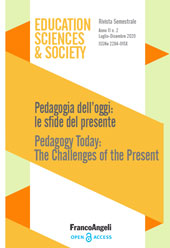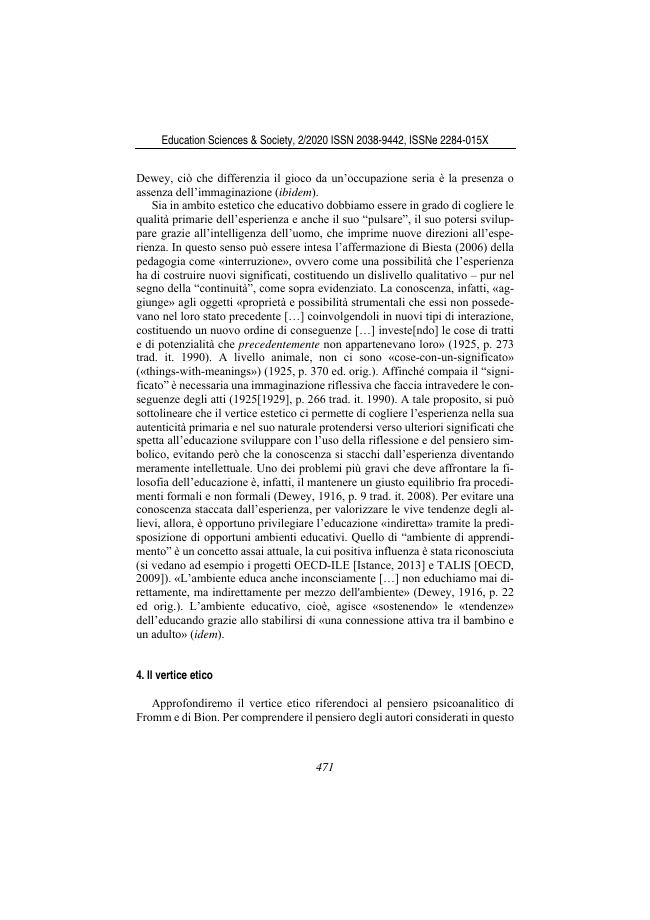Quale learning per il XXI secolo?
P. 458-483
Il tema dell'apprendimento è ormai al centro dei sistemi educativi. L'interesse per“come” la mente apprende ha sopravanzato il “cosa” apprende. Di qui l'enfasisulle “competenze” che dovrebbero mettere in condizione il soggetto non solo dicontribuire alla coesione sociale e alla propria crescita personale ma anche, comeviene ribadito in molti documenti di importanti organizzazioni e decisori internazionali,allo sviluppo economico e alla crescita dell'occupazione nell'ambito diuna learning economy. L'interesse che proviene da questi ambienti per una “nuovapedagogia” che fornisca “competenze” utili alla crescente competizione nell'ambitodel capitalismo cognitivo rischia, tuttavia, di enfatizzare solo la dimensionestrumentale dell'apprendimento.
In questo modo viene meno quella tensione frasoggettività e universalità che l'epoca della Bildung aveva impresso nel concettodi educazione e della quale oggi si sente un rinnovato bisogno. Il contributo intendeaffrontare queste tematiche proponendo tre “vertici” (creativo, estetico eetico) che intendono fornire un contributo per arricchire il concetto di apprendimentotenendo sullo sfondo proprio quello di universalità. [Testo dell'editore]
The Learning is now at the center of education systems. The interest in “how”the mind learns has outweighed the “what” it learns. Hence the emphasis on the“skills” that should put the person in a position not only to contribute to socialcohesion and to their own personal growth but also, as it is confirmed in manydocuments of important international organizations and decision makers, toeconomic development and employment growth within a learning economy.The interest that comes from these environments for a “new pedagogy” thatprovides “skills” useful for the growing competition in the context of cognitivecapitalism, however, risks emphasizing only one dimension of learning thatfavors its instrumentalization.
In this way, the tension between subjectivity anduniversality that the Bildung era had impressed on the concept of education, andof which a renewed need is felt today, is eliminated. The contribution aims toaddress these issues by proposing three “vertexs” (creative, aesthetic and ethical) which intend to provide a contribution to enrich the concept of learningwhile keeping universality on background [Publisher's text]
Forma parte de
Education Sciences & Society : 2, 2020-
Artículos del mismo número (disponibles individualmente)
-
Información
Código DOI: 10.3280/ess2-2020oa9654
ISSN: 2038-9442
MATERIAS
KEYWORDS
- Apprendimento, creatività, estetica, etica, Bildung
- Learning, creativity, aesthetics, ethics, Bildung



